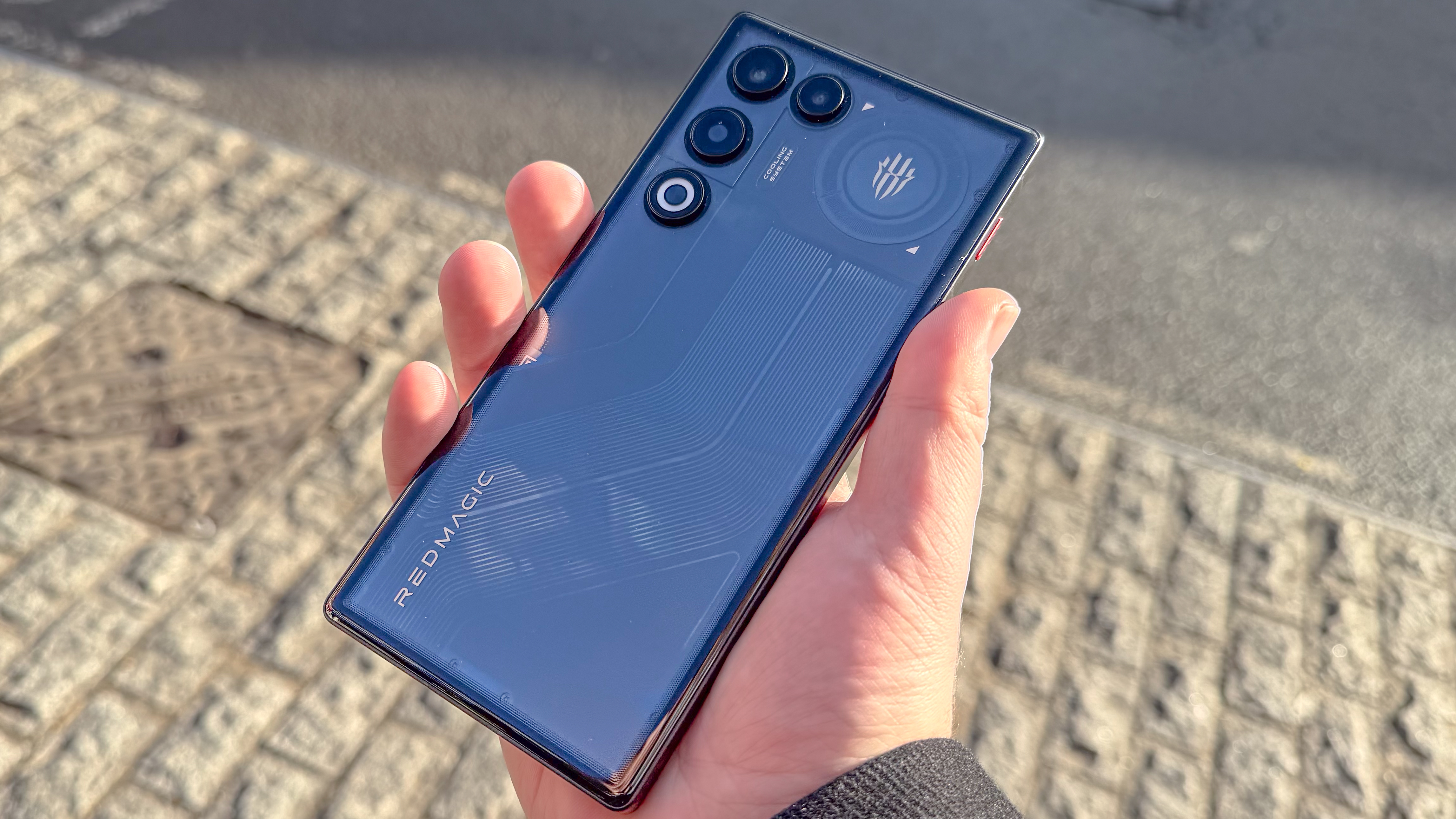The Google Pixel 8 is a better buy than Pixel 7a — here's why
The Pixel 8's arrival has cleared up any confusion you might have had about Google's phone lineup
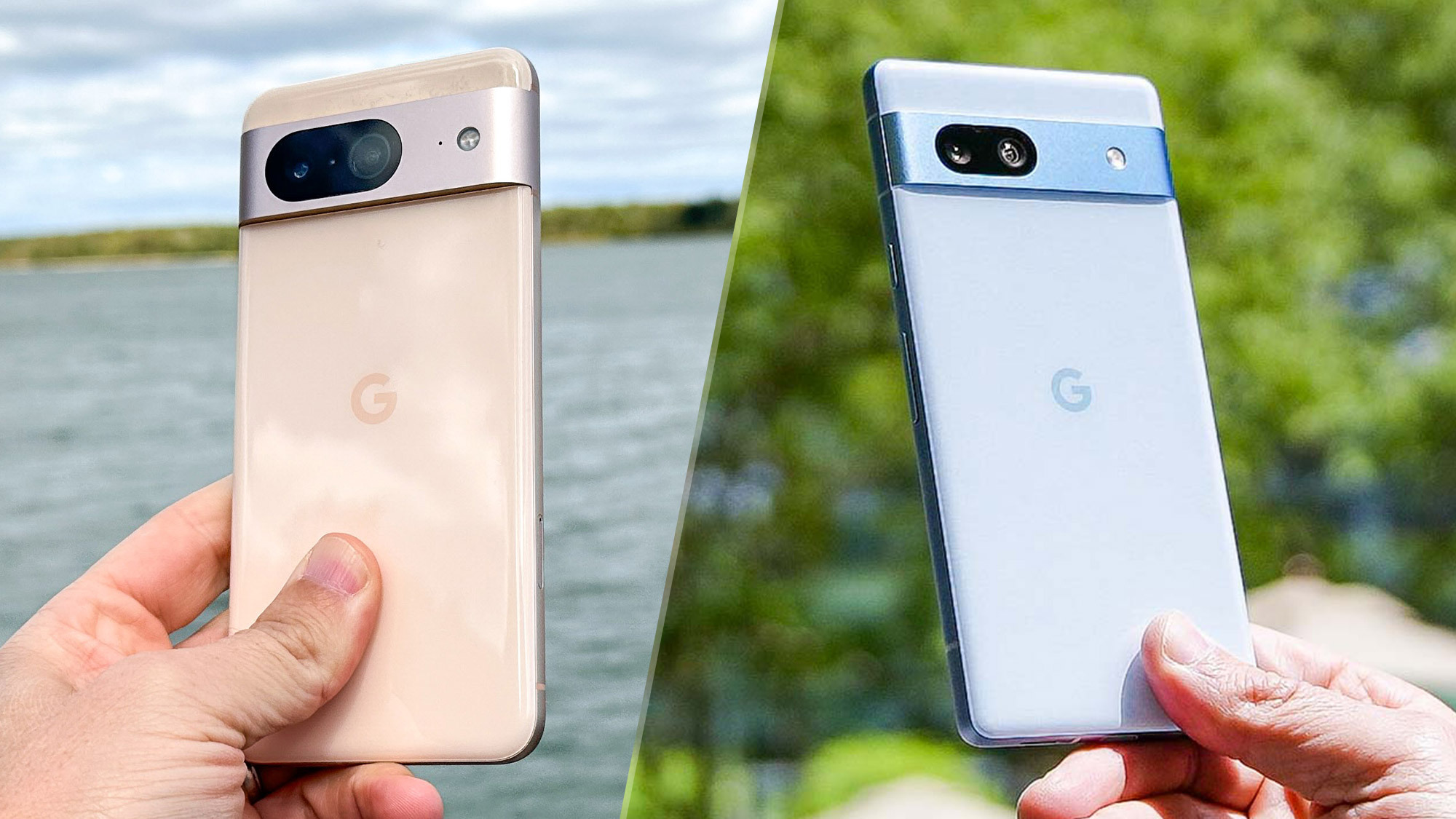
The arrival of Google's Pixel 7a earlier this summer posed quite a quandary for anyone considering a Google phone purchase at the time. Shoppers were left to weigh the merits of buying the midrange Pixel 7a or to pay up for the Pixel 7 — a decision complicated by the fact that it didn't seem like there was much of a difference between the two devices.
It's safe to say that the subsequent release of the Google Pixel 8 has changed that debate considerably. While a Pixel 7a vs. Pixel 7 comparison produced very few distinctions, the Pixel 8 has proven to be a dramatically different phone than Google's budget offering. While there's still plenty of reason to consider the Pixel 7a — it is the best cheap phone under $500, after all — the Pixel 8 is clearly the more fully featured device, a claim the Pixel 7 couldn't make.
Here's a closer look at what happened to Google's phone lineup to make the Pixel 8 and Pixel 7a more distinct options.
Pixel 7a — like a Pixel 7, but cheaper
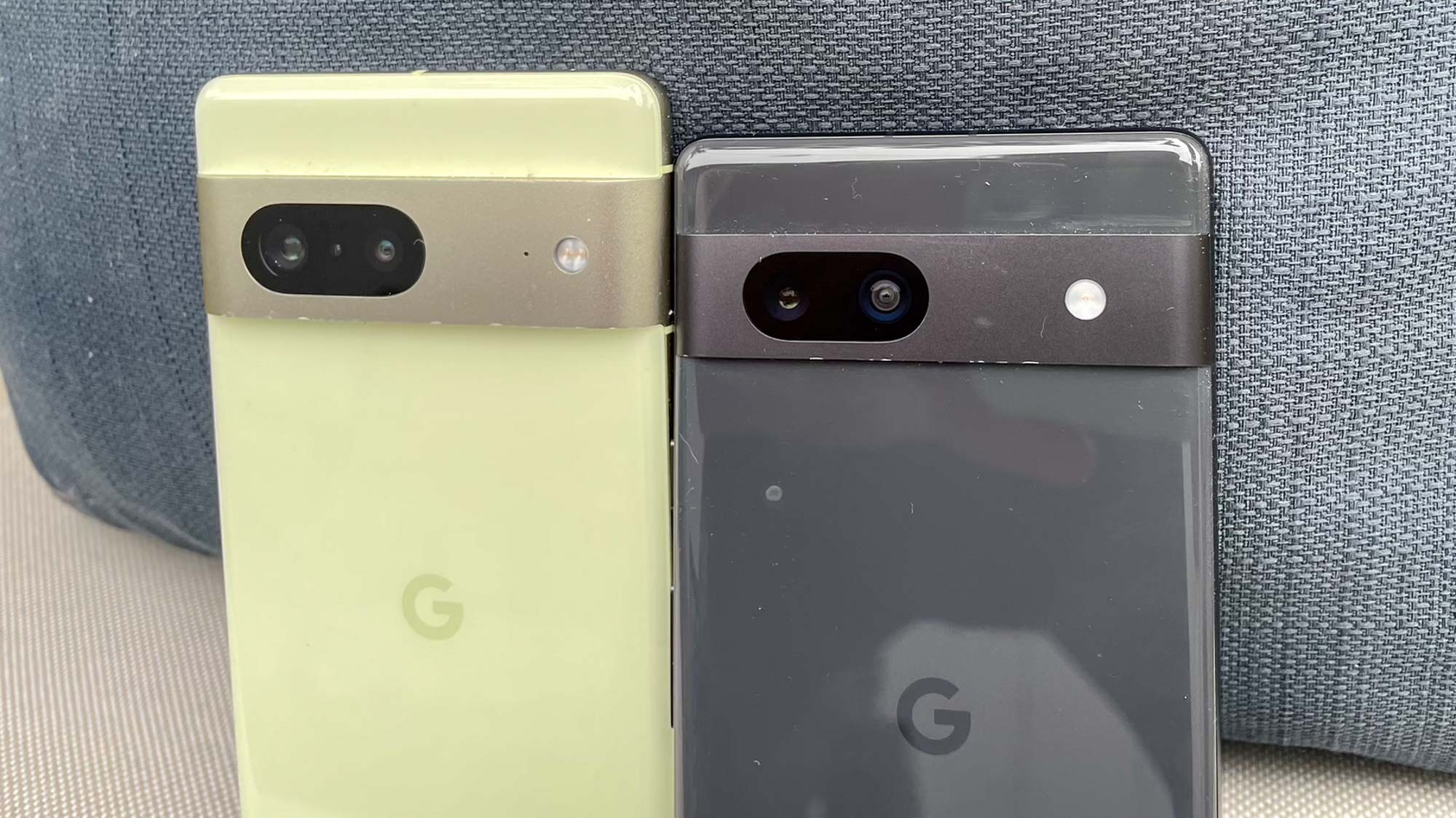
Before diving into the Pixel 8's relative merits, let's rewind back to the Pixel 7a's arrival to see how closely it matched the Pixel 7, which was Google's entry-level flagship at the time. You would have been hard-pressed to spot any differences between the flagship device and the supposedly stripped-down midrange version.
For starters, both the Pixel 7 and Pixel 7a ran on a Tensor G2 chipset. That meant the same AI-powered experiences that Pixel 7 owners enjoyed — everything from Photo Unblur for cleaning up images to call management tools to keep unwanted phone calls at bay — became available to the Pixel 7a.
As for cameras, the Pixel 7a introduced an upgraded 64MP main camera, a big step up from the 12MP sensor used on previous Pixel A models. The upgraded camera hardware combined with improved photo processing powered by the new Tensor chip produced images on par with what the Pixel 7 cranked out. When I conducted a Pixel 7a vs. Pixel 7 camera comparison, I found little to separate the two devices.
You could pinpoint other little differences here and there — the Pixel 7a using cheaper materials, the Pixel 7 offering a slightly larger screen and so on. Perhaps the biggest remaining difference between the two hones came down to battery life, and it reflected well on the Pixel 7a. Google's budget phone managed to outlast its flagship by more than 3 hours on our battery test.
Get instant access to breaking news, the hottest reviews, great deals and helpful tips.
| Google Pixel 8 | Google Pixel 7a | Google Pixel 7 | |
| Staring price | $699 | $499 | $599 |
| Display | 6.2-inch OLED | 6.1-inch OLED | 6.3-inch OLED |
| Refresh rate | 120HZ | 90Hz | 90Hz |
| CPU | Tensor G3 | Tensor G2 | Tensor G2 |
| RAM | 8GB | 8GB | 8GB |
| Storage | 128GB, 256GB | 128GB | 128GB, 256GB |
| Rear cameras | 50MP main (f/1.68), 12MP ultrawide (f/2.2) | 64MP (f/1.89) main; 13MP (f/2.2) | 50MP (f/1.85) main; 12MP (f/2.2) ultrawide |
| Front cameras | 10.5MP (f//2.2) | 13MP (f/2.2) | 10.8MP (f/2.2) |
| Battery size | 4,575 mAh | 4,385 mAh | 4,355 mAh |
| Battery life (Hrs:Mins) | 9:43 (smooth 120Hz) / 9:59 (60Hz) | 10:05 | 7:13 (90Hz) |
| Size/Weight | 5.9 x 2.8 x 0.4 inches / 6.4 ounces | 6 x 2.8 x 0.4 inches / 6.8 ounces | 6.1 x 2.9 x 0.3 inches / 6.9 ounches |
The Pixel 7a debuted at $499, after Google raised the price by $50 over the Pixel 6a. That meant a $100 price difference with the $599 Pixel 7, but let me assure you since I reviewed both phones — there was not $100 worth of differences between the Pixel 7a and the Pixel 7. It definitely made more sense to opt for the cheaper of Google's two devices.
The Pixel 8 changes everything
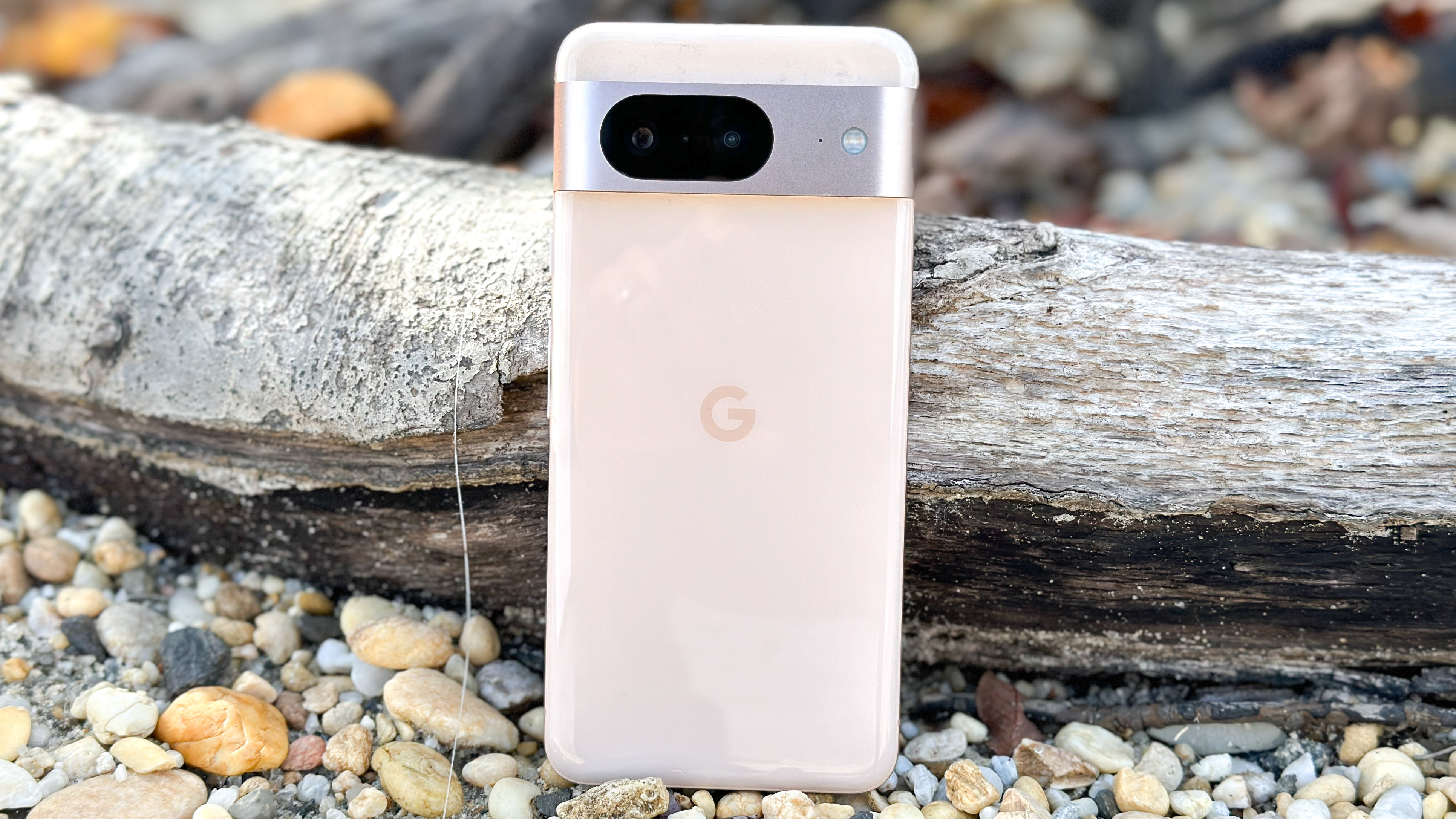
When the Pixel 8 arrived earlier this month, it became pretty clear pretty quickly how big the Pixel 8 vs. Pixel 7 changes actually were. And by dramatically improving its lowest-priced flagship, Google also wound up putting some distance between its newest phone and the Pixel 7a.
A lot of the improvements can be chalked up to the addition of a new chipset to the Pixel 8 family — a Tensor G3 now runs the show. While that means performance improvements over Tensor G2-powered phones — the Pixel 8 beats the Pixel 7a in both the speed and graphics benchmarks we ran — it also means new features on the Pixel 8 not available to the Pixel 7a.
Call management features on the Pixel 8 are enhanced with a more natural-sounding assistant, who not only fields calls, but can relate the nature of the call to you, so you can better decide if it's a call you really need to take. There's a proofreading button added to the keyboard, and you can have an AI-powered assistant summarize web pages for you.
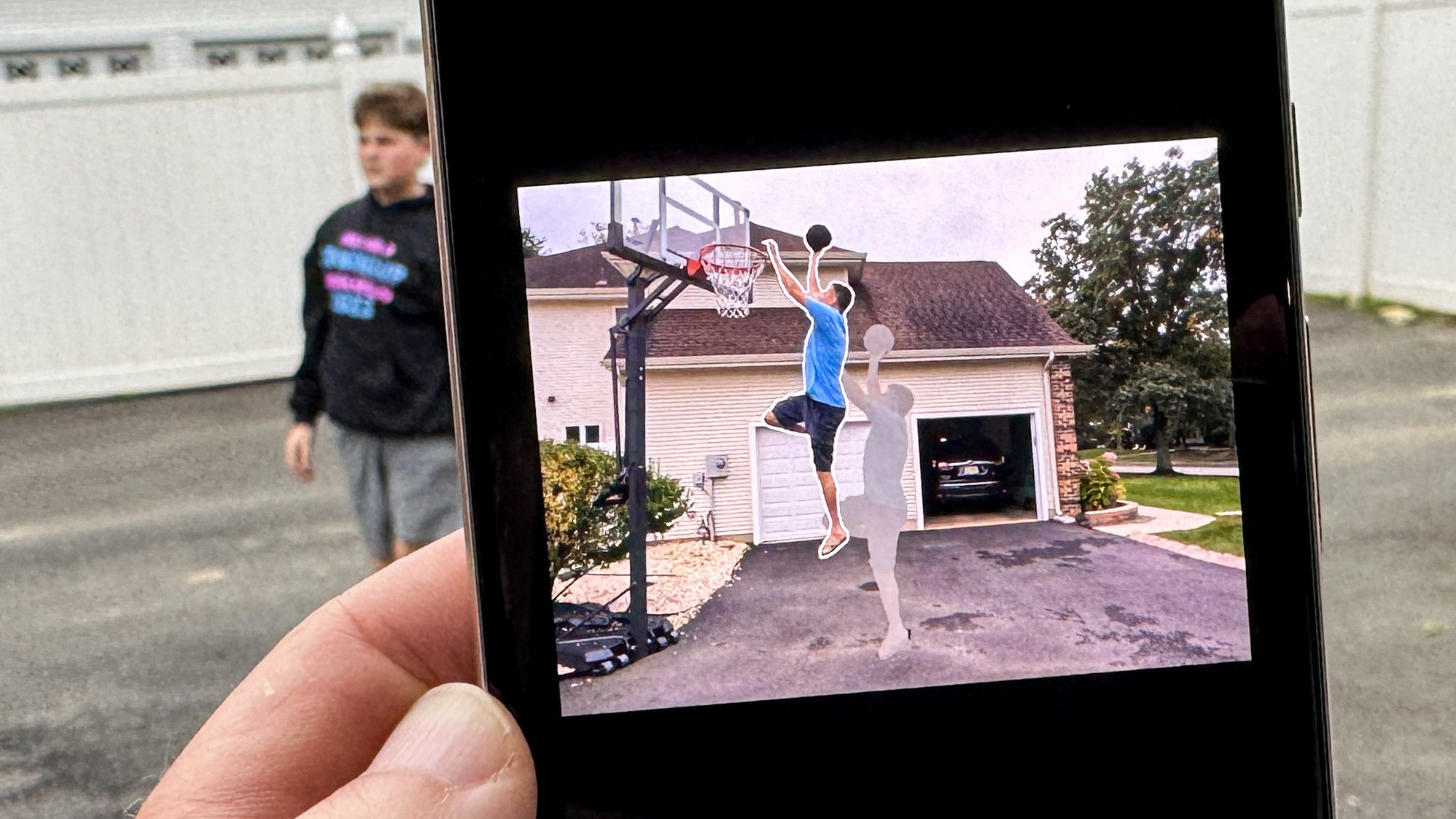
Pixel 8 cameras benefit from a wider aperture on the main lens to collect more light, but the real changes come courtesy of the Pixel 8's improved on-board AI. That enables Pixel 8-exclusive features like a Magic Editor tool that makes it easy to revamp photos with just a few taps or a Best Take editor to swap in faces from similar photos for an optimized group shot. You won't find these capabilities on the Pixel 7a, giving you an incentive to pay up for Google's flagship.
Even the display sees a significant improvement on the Pixel 8. For starters, Google bumped up the refresh rate — while the Pixel 7a shared the same 90Hz rate as found on the Pixle 7, you get a 120Hz refresh rate with the Pixel 8. The display's much brighter, too, after Google adopted a new Actua display, that registered 1,349 nits of brightness when tested it with a light meter. HDR brightness peaked at 931 nits in Pixel 7a testing.
Put another way, the Pixel 8 is a better phone than its predecessor in nearly every way. From a Pixel 7a perspective, the Pixel 8 features push it far ahead of what the midrange phone offers.
Pixel 8 vs Pixel 7a — which phone should you buy?
It will take a complete Pixel 8 vs. Pixel 7a face-off to determine which phone is the best choice for you. In some cases, that's going to be the Pixel 7a, especially if you balk at paying top dollar for your smartphone. The Pixel 7a is the best camera phone for less than $500, so there's still a lot of value to be had by opting for Google's midrange model.
But the Pixel 8 will have its fans, too, particularly among people who want a more fully featured phone without having to pay close to $1,000 for a device like Pixel 8 Pro. It just goes to show what a difference a change in chipset can make, especially when that silicon is as smart as Google's Tensor G3.
More from Tom's Guide
- Pixel 8 Pro vs iPhone 15 Pro Max vs Galaxy S23 Ultra low-light photo face-off
- Google Pixel 8 and Pixel 8 Pro battery life
- Google Pixel 7a vs. Samsung Galaxy A54 camera face-off
Philip Michaels is a Managing Editor at Tom's Guide. He's been covering personal technology since 1999 and was in the building when Steve Jobs showed off the iPhone for the first time. He's been evaluating smartphones since that first iPhone debuted in 2007, and he's been following phone carriers and smartphone plans since 2015. He has strong opinions about Apple, the Oakland Athletics, old movies and proper butchery techniques. Follow him at @PhilipMichaels.
 Club Benefits
Club Benefits






